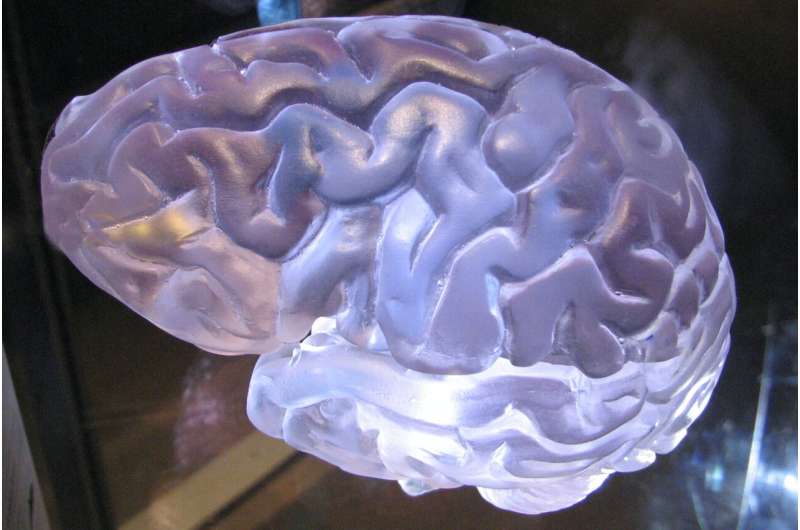This article has been reviewed according to Science X's editorial process and policies. Editors have highlighted the following attributes while ensuring the content's credibility:
fact-checked
trusted source
proofread
'Most horrible' brain tumor patients falling through healthcare cracks, study shows

Patients suffering from the "most horrible" rare brain tumor are falling through the cracks of mental health provision, University of Essex researchers have found.
A recent study which interviewed patients and clinicians discovered survivors struggle to access therapy available for other serious illnesses, such as cancer, and there was a lack of specialized support.
For the first time, the mental health of British rare brain tumor patients was examined by psychologists and now researchers are calling for urgent changes to the health service.
Dr. Katie Daughters hopes her findings—published in the European Journal of Oncology Nursing—will lead to an expansion of NHS mental health services to brain tumor patients, for doctors to receive vital training and for more specialized services to be created.
Dr. Daughters' work focussed on the impact of adult-onset craniopharyngioma —which typically affects 50-74-year-old's, although anyone older than 18 can be diagnosed with the tumor.
Craniopharyngiomas grow near the pituitary gland, a vital center for hormone production, and the optic nerve, which is why patients often experience visual disturbances, weight increases and personality changes.
Fortunately, surgical removal of the tumor has a high survival rate, but the intrusive treatment can be just the beginning of a very long road.
Dr. Daughters discovered that after physical treatment patients struggled to receive therapy or counseling—despite the illness causing widespread psychological difficulties.
Dr. Daughters said, "Most people have never heard of craniopharyngiomas, however, for those that have, they know how awful these tumors can be.
"An experienced neurosurgeon who took part in the study described these tumors as 'about the most horrible condition I look after', while patients reported that they 'don't feel like I'm the same person I was before the diagnosis'.
"We understand that patients suffer a poorer quality of life, but until now, we haven't actually asked patients, and the people who treat them, how the tumor has impacted their lives outside of hospital.
"What we learned is that the impact can be devastating and, importantly, this study shows they're not receiving the psychological support they need."
As part of the study, Dr. Daughters interviewed patients and doctors at the frontline of the rare condition.
Dr. Daughters discovered depression and anxiety were extremely common among patients with many struggling to control their emotions, sometimes crying "at the drop of a hat" or angry for no reason.
While many patients had physical symptoms—like fatigue and weight gain—it was the impact of these on their social lives and ultimately their mental health that really concerned them.
Doctors and patients all said more needed to be done to help understand the psychological impact of adult-onset craniopharyngioma, and that simply hearing other patients' experiences would "make me feel less of a freak".
With clinicians calling for more specialized mental health services in the long term, and to let craniopharyngioma patients access existing services currently available for cancer patients in the short term.
Dr. Daughters added, "Now we have a clear picture of the kinds of strengths and difficulties adult-onset craniopharyngioma patients experience in their day-to-day lives, we can design further studies to examine these processes and ultimately design new interventions to improve the social lives of these patients."
More information: Katie Daughters et al, The psychological impact of adult-onset craniopharyngioma: A qualitative study of the experience of patients and clinicians, European Journal of Oncology Nursing (2023). DOI: 10.1016/j.ejon.2023.102346




















